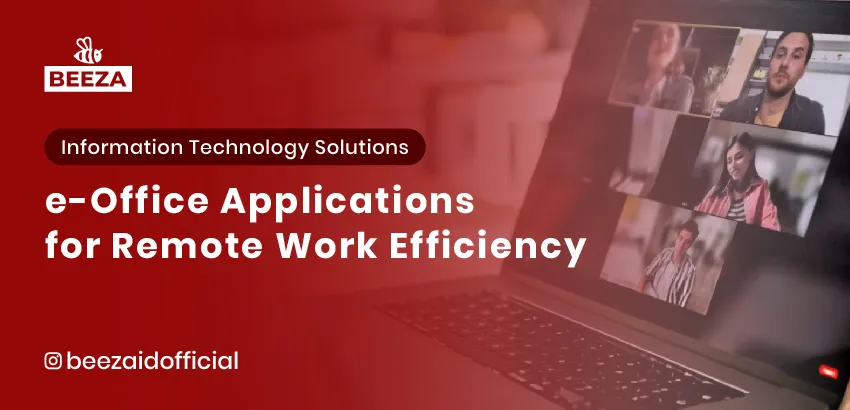
With the rise of remote work adoption, organizations increasingly rely on eOffice applications to ensure seamless operations and enhance efficiency. eOffice applications facilitate digital collaboration and document management, enabling teams to work productively and securely without being in the same physical location. Features such as secure document management and digital signature capabilities play a critical role in regulatory compliance and maintaining document integrity.
Why eOffice Applications Are Essential for Remote Work
Remote work demands secure and efficient document management. Without eOffice applications, manual processes involving physical document delivery and traditional archiving can be slow and error-prone. With eOffice solutions, all documents can be digitally accessed, modified, and signed without requiring face-to-face interaction. These systems enhance operational efficiency and minimize risks associated with manual document handling.
Key features like cloud-based file management support real-time document handling. This allows teams to share, edit, and approve documents from anywhere while maintaining high levels of security.
Secure Document Management
One of the biggest challenges of remote work is ensuring the security of shared documents. eOffice applications offer secure document management solutions through encryption and strict access controls. Sensitive documents are accessible only to authorized parties, and all document changes are logged to ensure transparency and authenticity.
For instance, version control features allow teams to track changes in documents and revert to previous versions when necessary. This reassures organizations that their documents are well-managed and protected from potential data leaks or errors.
Digital Signatures for Compliance and Efficiency
Digital signatures have become an essential component of eOffice applications supporting remote work. With digital signatures, documents can be legally signed without physical meetings. This is especially critical for legal documents, business contracts, and other agreements requiring signature authenticity.
Digital signatures ensure that documents remain unaltered after signing, preserving the integrity and authenticity of the information. Furthermore, digital signature solutions often include audit trail features that record who signed the document and when, ensuring compliance with regulatory requirements.
Boosting Productivity Through Integrated Collaboration
Beyond document management and digital signatures, eOffice applications also provide collaboration tools that enable teams to work more effectively, even when apart. Internal chat features, video calls, and integration with other platforms allow for more efficient communication, reducing the reliance on physical meetings.
eOffice platforms simplify project management by enabling task creation, progress tracking, and file sharing in a unified system. By minimizing the use of external tools and separate applications, teams can work faster with fewer interruptions.
Ensuring Regulatory Compliance
With an increased focus on data security and privacy, eOffice applications help organizations meet relevant regulations, such as GDPR, HIPAA, or PSQ. Using advanced encryption, role-based access controls, and digital signatures, these tools ensure compliance in electronic document management.
These applications not only protect personal data but also facilitate audits necessary for transparency and compliance across the organization. With strict oversight and real-time audit report generation, companies can adhere to regulations without compromising efficiency.
Advanced Features Supporting Remote Work
As technology evolves, eOffice applications continue to introduce advanced features supporting remote work. One key feature is integration with enterprise resource planning (ERP) systems, enabling business data to remain connected with documents processed within eOffice. This improves transparency and reduces errors in data processing.
Additionally, many eOffice applications now include AI capabilities for automated document analysis, such as scanning and highlighting key information in contracts or legal documents. This technology not only accelerates workflows but also minimizes the risk of human error.
Key Points:
- eOffice applications support remote work through secure and efficient document management.
- Digital signatures ensure legal compliance and document integrity without physical meetings.
- Cloud-based collaboration systems boost productivity by reducing reliance on physical meetings.
- Version control and audit trail features ensure documents are securely managed and accountable.
- eOffice applications comply with regulations like GDPR and HIPAA, helping companies maintain data security standards.
Conclusion
eOffice applications have become an indispensable solution for supporting secure and productive remote work. With secure document management, digital signature capabilities, and advanced collaboration features, these applications enable organizations to remain efficient and compliant, even with geographically dispersed teams. By adopting eOffice solutions, companies can enhance productivity, reduce dependence on physical meetings, and safeguard data integrity and security.
Want to learn more about how eOffice applications can help your business? Contact us to find the perfect solution for your organization’s needs.